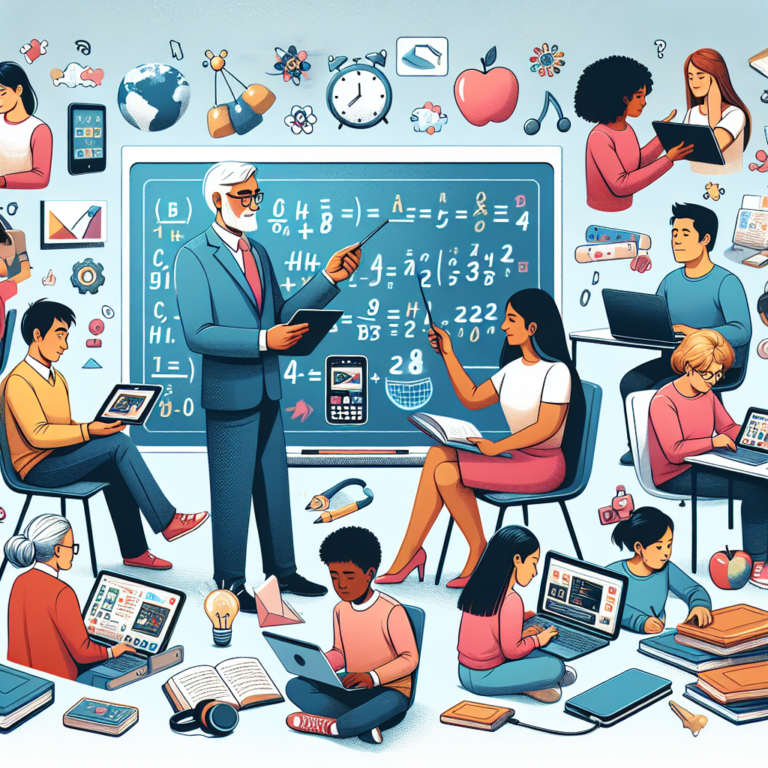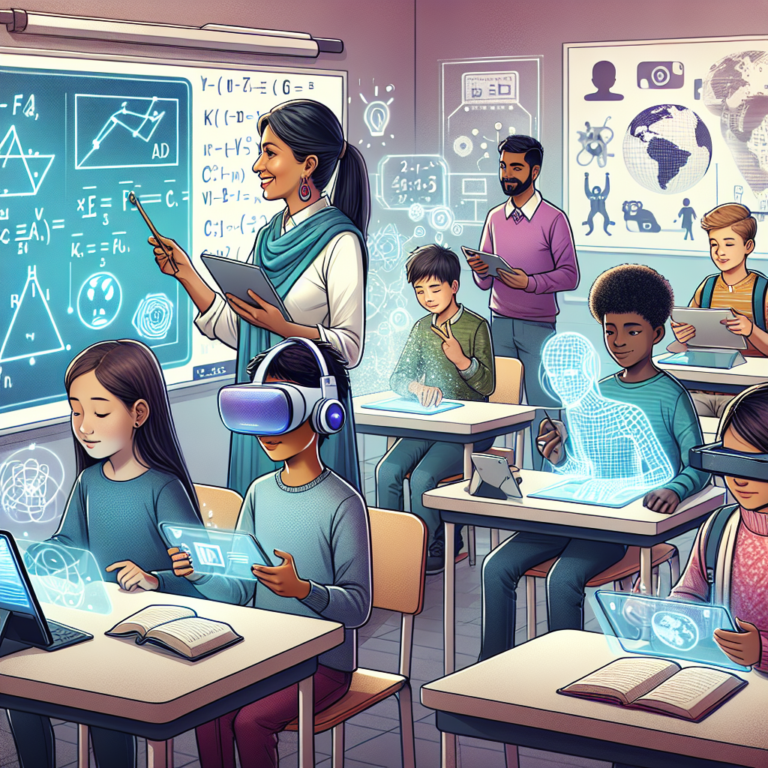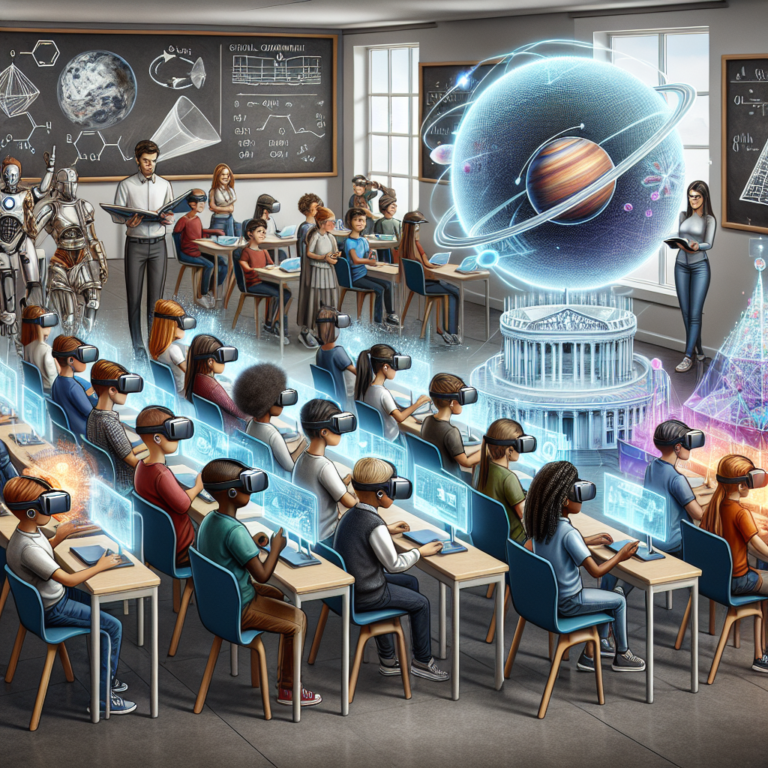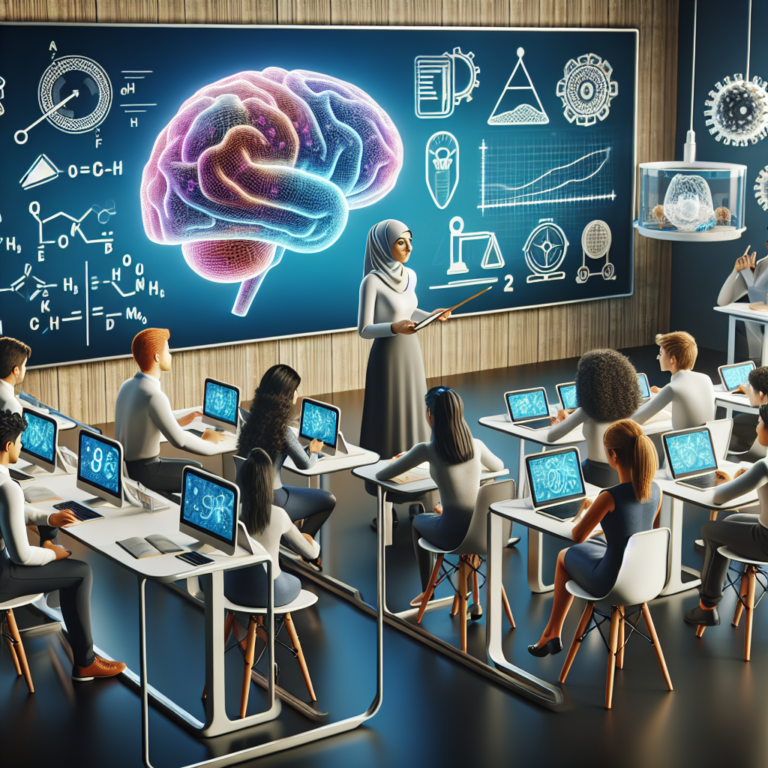The Future of Education Technology
The intersection of education and technology is a dynamic landscape. It’s a realm where innovation and learning converge, shaping the future of education.
Education technology, or EdTech, is not a new concept. Yet, its potential is only beginning to unfold. From tech tools enhancing classroom experiences to the rise of online learning platforms, the scope is vast.
The meaning of technology in livelihood education is evolving too. It’s no longer just about equipping students with digital skills. It’s about fostering lifelong learners who can adapt to an ever-changing digital world.
Special education is also witnessing a transformation. The Journal of Special Education Technology highlights how tech tools are making learning more accessible and inclusive.
This article delves into these aspects and more. It explores the current state, future trends, and the impact of education technology. It also shares insights from recent education technology conferences, painting a comprehensive picture of the future of education technology.
The Evolution of Education Technology
The journey of education technology has been a fascinating one. It began with simple tech tools like chalkboards and overhead projectors, transforming classrooms into more engaging spaces.
Fast forward to the digital age, and we see a seismic shift. The advent of the internet, mobile devices, and cloud computing has revolutionized education. It has opened up new avenues for learning, teaching, and collaboration, setting the stage for the future of education technology.
Current State of Education Technology
Today, education technology is at the heart of learning and teaching. It’s not just about digitizing textbooks or automating administrative tasks. It’s about creating immersive, personalized, and interactive learning experiences.
From AI-powered adaptive learning systems to VR-enabled virtual labs, tech tools are transforming the educational landscape. They are democratizing access to quality education, fostering lifelong learning, and preparing students for a technology-driven future.
Predicting the Future: Trends and Innovations
As we look ahead, several trends and innovations are poised to shape the future of education technology. These advancements promise to further revolutionize learning, teaching, and the overall educational experience.
From artificial intelligence and virtual reality to data analytics and beyond, these technologies are set to redefine the boundaries of what’s possible in education. They will enable more personalized, immersive, and data-driven learning experiences.
The following sections delve into some of these key trends and their potential implications for the future of education.
Artificial Intelligence and Personalized Learning
Artificial intelligence (AI) is set to play a pivotal role in the future of education technology. It’s not just about automating tasks or providing intelligent tutoring.
AI has the potential to personalize learning like never before. It can adapt to each student’s unique learning style, pace, and preferences, providing a truly individualized learning experience.
Virtual and Augmented Reality in the Classroom
Virtual reality (VR) and augmented reality (AR) are no longer just for gaming. They’re making their way into classrooms, transforming the way students learn and interact with educational content.
VR and AR can create immersive, interactive learning experiences that engage students in a whole new way. They can transport students to different places, times, or even inside complex systems, making learning more experiential and impactful.
The Rise of Data Analytics in Education
Data analytics is another key trend shaping the future of education technology. It’s not just about collecting data, but about making sense of it to improve learning outcomes.
With data analytics, educators can gain insights into student performance, learning patterns, and areas of struggle. This can inform personalized learning strategies, early intervention efforts, and overall teaching effectiveness.
The Impact on Special Education
Education technology is not just transforming mainstream education. It’s also making a significant impact on special education. Tech tools are opening up new possibilities for students with diverse learning needs.
From assistive technologies to adaptive learning systems, these tools are helping to level the playing field. They are enabling students with disabilities to access, participate in, and benefit from education in ways that were not possible before.
Technology and Lifelong Learning
The future of education technology is not confined to the traditional classroom. It extends to lifelong learning, enabling individuals to acquire new skills and knowledge throughout their lives.
Technology is facilitating this shift by providing access to a wealth of resources and learning opportunities. From online courses to digital libraries, tech tools are making lifelong learning a reality for many.
Challenges and Ethical Considerations
Despite the promising future of education technology, it is not without challenges. The digital divide, for instance, threatens to exacerbate educational inequalities. Not everyone has equal access to the necessary tech tools, creating a gap between the tech-savvy and the tech-deprived.
Moreover, ethical considerations cannot be overlooked. Issues of data privacy and cybersecurity are of paramount importance in a digital learning environment. As we embrace the future of education technology, we must ensure that it is used responsibly and ethically.
Insights from Recent Education Technology Conferences
Education technology conferences serve as a platform for sharing insights and discussing future directions. Recent conferences have highlighted the importance of aligning technology with pedagogical goals. The focus is not just on integrating tech tools, but on how these tools can enhance learning outcomes.
Moreover, these conferences have emphasized the need for continuous innovation and research in the field of education technology. As we move forward, it is crucial to keep exploring new ways to leverage technology for the benefit of learners and educators alike.
Conclusion: Embracing the Future of Education Technology
The future of education technology holds immense potential. From personalized learning experiences to enhanced accessibility, technology is set to redefine the educational landscape. However, it is essential to approach this future with a balanced perspective, considering both the opportunities and challenges it presents.
As we embrace this future, let’s strive to ensure that technology serves as a tool to enhance learning, rather than a substitute for the human touch that lies at the heart of education.








